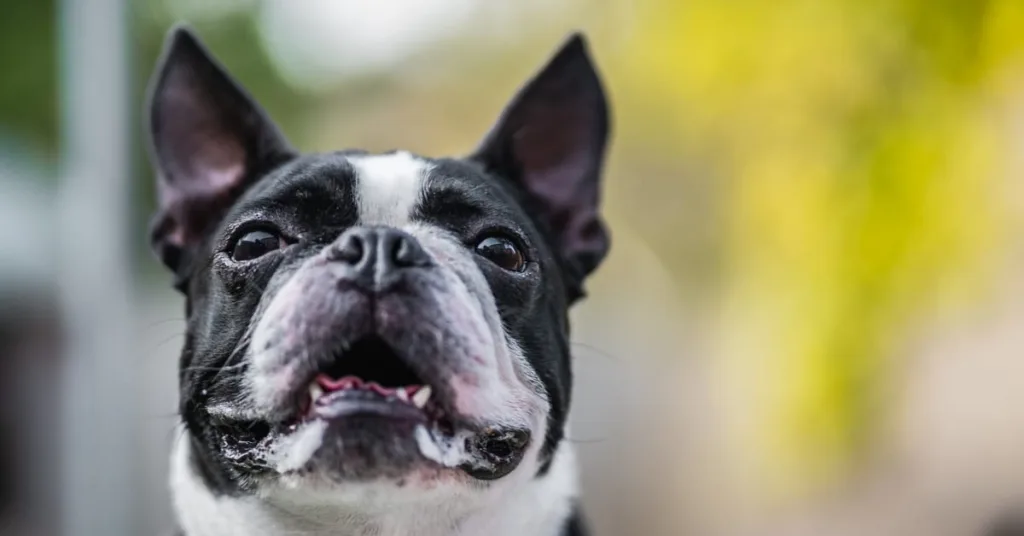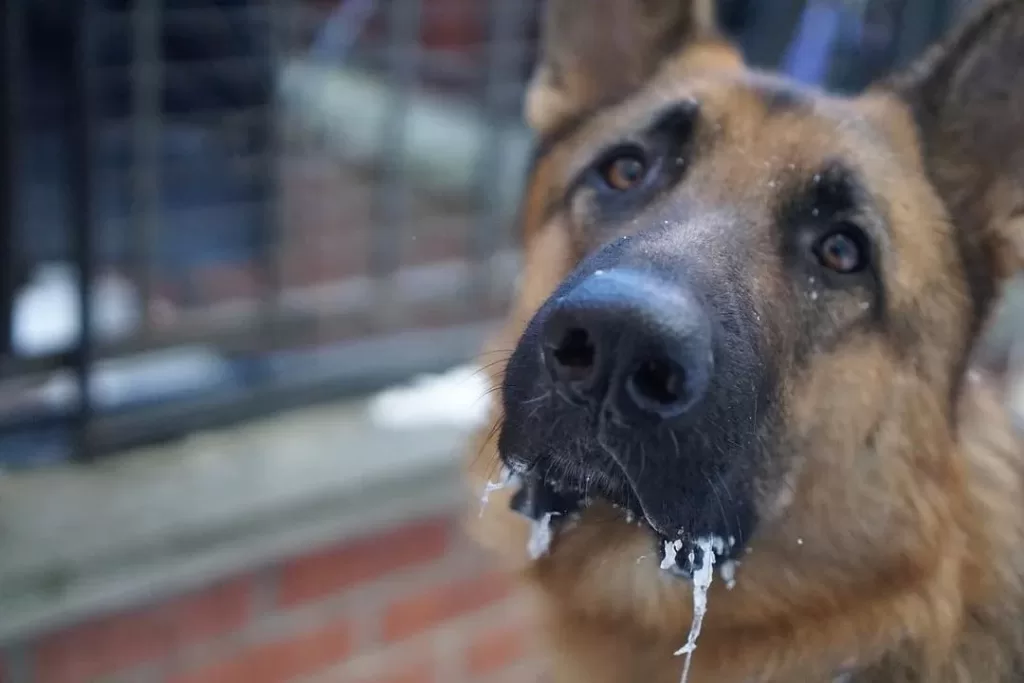If your dog is foaming at the mouth, there could be a number of reasons. There are a few potential reasons why a dog might foam at the mouth.
One possibility is that the dog is experiencing a seizure, which can cause them to salivate excessively.
Another potential explanation is that the dog is suffering from rabies, which can also lead to excessive drooling.
In some cases, dogs may foam at the mouth simply because they are excited or agitated, such as when they see someone they know or when they are being taken for a walk.
Some common causes of foaming at the mouth in dogs include
Dental problems
There are many potential reasons why a dog might foam at the mouth, but one of the most common is dental problems. In particular, when a dog’s gums become inflamed and infected, they can produce large amounts of saliva that can bubble up to the surface. This can be incredibly uncomfortable for the dog and often results in them trying to dislodge the infection by vigorously licking their lips and teeth.
Obstructions in the airway (such as a foreign object)
The cause of foaming at the mouth in dogs can vary, but one common reason is obstructions in the airway. This can be due to a foreign object that has been inhaled, or to something blocking the passage of air into and out of the lungs. When air cannot flow freely, it causes a build-up of pressure in the lungs, which forces fluid out of the blood vessels and into the mouth. This results in excessive drooling and foam production.
Liver disease
There are a few potential reasons why your dog might be foaming at the mouth. One is liver disease, which can cause a condition called jaundice. Jaundice can cause a yellowing of the skin and whites of the eyes, as well as excessive foaming. Other potential causes of foaming at the mouth in dogs include poisoning, tumors, and infections.
Poisoning
One possible explanation for foaming at the mouth is poisoning. When a dog ingests a poisonous substance, the toxin can cause the cells in the mouth to release excess fluid, leading to foaming. Poisoning can also cause a number of other serious symptoms, such as seizures, vomiting, and difficulty breathing. If you believe your dog may have been poisoned, it is important to seek veterinary assistance immediately.
Also Read: Potty Training a Stubborn Puppy | Tips, and Tricks Involved in it.
Surgery or infection
One other possibility is that the dog is undergoing surgery, and the foaming is caused by the anesthesia. Another possibility is that the dog has an infection, and the foaming is a result of the body’s attempt to fight off the infection. Additional causes of mouth-foaming in dogs can include epilepsy, exposure to certain toxins, or a tumor on the brain.
In some cases, there may be no known cause. Your veterinarian will perform a full medical examination to determine the source of the problem.
Prevention
There is no one-size-fits-all answer to this question, as the prevention of dog foaming in the mouth will vary depending on the underlying cause. However, some general tips that may help include ensuring that the dog’s diet is balanced and includes enough freshwater, brushing their teeth regularly, and checking for any dental problems that may need to be addressed. If the foaming is due to an infection or other medical condition, treatment for that condition will be necessary.
FAQs
Dog foaming at the mouth and vomiting
If your dog is foaming at the mouth and vomiting, it might have a problem with its stomach or intestines. However, it’s also possible that your dog has rabies. Rabies causes the dog’s saliva to foam, and it vomits because the virus makes the muscles in the stomach and intestines contract. If you see these symptoms in your dog, take it to the veterinarian immediately.
Dog foaming at the mouth while playing
Some dogs start foaming at the mouth when they get too excited, such as when playing. This is not usually a cause for alarm and is simply the dog’s way of releasing excess energy. The foam is not harmful to the dog and will dissipate on its own. Foaming at the mouth can also be a sign of excitement or happiness, so it’s not always a bad thing.
Dog foaming at the mouth and shaking
Dog foaming at the mouth and shaking can be a sign of serious illness. However, it is also often a sign of anxiety. Dogs may foam at the mouth and shake when they are in a new or frightening environment, or when they are around people or other animals they don’t know.
There are many products on the market that can help dogs who foam at the mouth and shake due to anxiety.
One type of product is a ThunderShirt, which is a vest that wraps around the dog’s body and applies pressure. This pressure has been found to calm dogs who are anxious or fearful. Another type of product is a pheromone spray or diffuser.
Pheromones are chemicals that occur naturally in the body and have been found to be calming for animals.
What to do if your dog is foaming at the mouth

If your dog is foaming at the mouth, there are a few things you can do to help. One is to try and determine what may have caused the episode.
Dogs can foam at the mouth for many reasons, such as eating something poisonous, having a seizure, or being in pain. If you can’t determine the cause, take your dog to the veterinarian for help.
The vet will be able to determine what is wrong and provide treatment if necessary. Foaming at the mouth can be a sign of a serious problem, so it’s important to get help if you see it.
What to do if your dog is foaming at the mouth
If your dog is foaming at the mouth, there are a few things you can do to help. One is to try and determine what may have caused the episode.
Dogs can foam at the mouth for many reasons, such as eating something poisonous, having a seizure, or being in pain. If you can’t determine the cause, take your dog to the veterinarian for help.
The vet will be able to determine what is wrong and provide treatment if necessary. Foaming at the mouth can be a sign of a serious problem, so it’s important to get help if you see it.
Here are the steps if your dog is foaming at the mouth
- Rinse the Mouth with Warm Water
- Look for Signs of Poisoning
- Brush the Teeth
- Provide Fluids and Nutrients
- Monitor the Condition
- Seek Veterinary Attention
In conclusion, if your dog is foaming at the mouth, it is important to take them to the veterinarian as soon as possible. There are a number of potential causes for this, and some of them can be quite serious. The veterinarian will be able to determine the cause and provide treatment, if necessary.

